第102章 Chapter (6)
He ascribes it to an error of Marion himself. He says that, "Marion (who was an infantry officer) gave the order to `file off from the house to the right,' instead of ordering `to charge!'
This induced his officers to believe that they were to retreat and not to fight." This may be true; but it is scarcely probable.
Retreat from the house, except into the river, seems to have been cut off.
The only other avenue was the lane. At the end of this was the enemy, drawn out in order of battle. Upon these the advance was ordered.
We have seen that Marion himself exulted in the conviction that the enemy was in his power. His exultation could not have been entirely concealed from his officers. It must have declared itself in some way.
The halt and hesitation of the British were perceptible to all.
They were in superior numbers, and when they reached the head of the lane, the horses of the American cavalry were unbitted and feeding.
A sudden and resolute charge, according to Mayham, on the part of the British, would have resulted in the entire defeat of the regiment.
That they did not order this charge betrayed their apprehensions, and should have encouraged, in similar degree, the Americans --DID encourage them, and hence the resolve of Marion to advance upon them.
That it should be supposed he would hurry forward, in the very teeth of the enemy, only to dash aside in confusion from the struggle, is scarcely reasonable. But Mayham was offended with Marion.
The latter had decided against him in the controversy with Horry;and the subsequent movement against the British, without stopping to require his presence, was another mortifying circumstance which he was not likely to forget. Biased by his feelings, he was not willing to believe that the seeming slight was in reality due to the emergency of the case, which would not allow a moment's hesitation in Marion's movement at such a juncture.
As soon as the presence of Marion was known, the fugitives gathered around him. But for his absence they had never been dispersed.
Horry's regiment was very much crippled; Mayham's in equally bad condition.
Of M`Donald's, and the brigade, a few hundred were soon brought together;and with his deranged and dispirited band, our partisan retired beyond the Santee to repair and recruit his strength, and revive the confidence of his men in their leaders and themselves.
In the meanwhile, the country which he had so recently covered and protected was harried by the British. They improved the interval of his absence by successful incursions. The cattle had been already put beyond their power, on the other side the Santee; but they stripped the plantations within their reach, as well of slaves as of provisions. Greene could do nothing to prevent them. His own army was in a state of convulsion and commotion;suffering from distress and discontent, and threatened with dissolution.
Recent occurrences had awakened his fears for his own security.
One result of Marion's recent disaster was to put an end to the dispute between Horry and Mayham. Their respective regiments were so reduced, after the affair at Wambaw, that it was deemed advisable to amalgamate them.
Having resolved upon this measure, Gov. Mathews, who had succeeded Rutledge, applied to Marion to know who of the two was the best cavalry officer --an opinion which Marion yielded with great reluctance.
His personal preferences went with Horry, but he could not hesitate in declaring for Mayham. Horry, with the ambition of a spirited soldier, eagerly desired a command of cavalry, -- was a good infantry officer, and had all the requirements of skill and bravery. But he was no horseman, and it is said that, in several of his charges, he was indebted to some one or other of his men for his own safety, being commonly unhorsed.
His gallantry and patriotism were equally unquestionable.
They had been displayed from the beginning of the war.
The preference shown Mayham caused Horry's resignation from the service;but to console him for the mortification, Marion made him commandant of Georgetown, a post which united the responsibilities and duties of a military and civil service.
With the adjournment of the Assembly at Jacksonborough, the army of Greene moved down from Skirving's plantation to Bacon's bridge, at the head of Ashley river. Here, within twenty miles of the enemy, a dangerous conspiracy ripened almost to maturity among the Pennsylvania troops, composed in part of the very mutineers who had triumphed over government in the insurrection in Jersey, and who, as Lafayette observed,* "had been well paid and well clothed in consequence of it." This, we believe, was the only body of troops furnished to the Southern army, during the Revolution, from any of the States north of Maryland and Delaware. We make this remark with the view to the correction of a very general error, arising from the vague manner in which it is customary for our historians to speak of the sources of the personnel of the Southern army. The armies led by Gates and Greene, to the defence of Carolina, were truly from States north of her, but they were not Northern States. Two fine bodies of troops came from Maryland and Delaware, but the rest were from Virginia and North Carolina, --with the exception of the Pennsylvania line, of which we have now to speak.
These, as we have seen, had been refractory in Jersey, and instead of being punished, were paid for their sedition. It was natural that they should endeavor to renew an experiment which had already proved so profitable.
The mutineers were directed by one Sergeant Gornell. Their number is unknown.